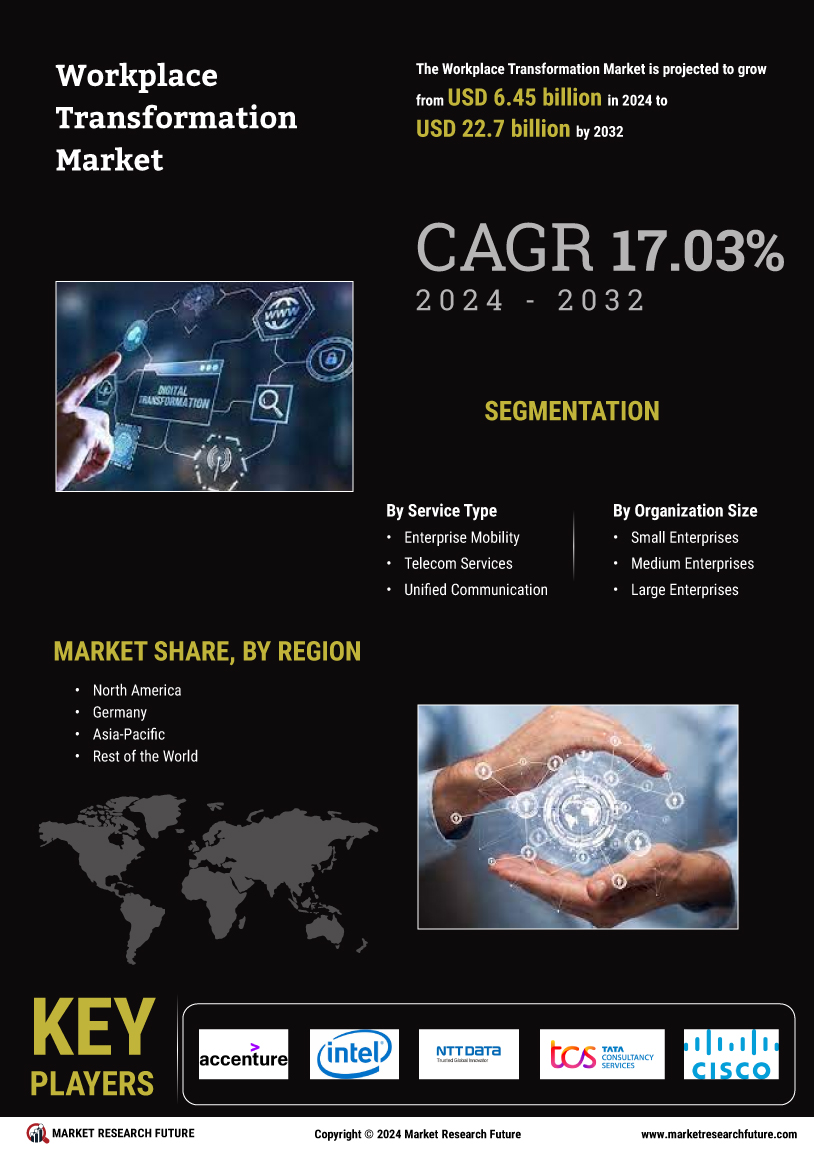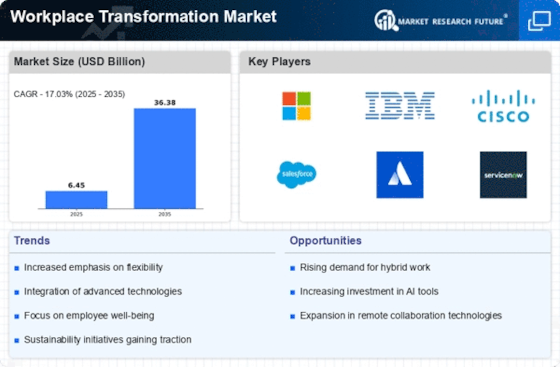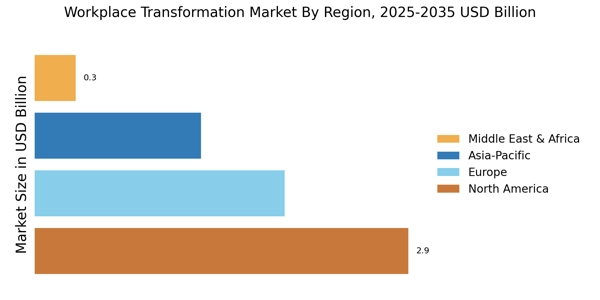Leading market players are investing heavily in research and development to expand their product lines, which will help the workplace transformation market grow even more. There are some strategies for action that market participants are implementing to increase their presence around the world's global footprint, with important market developments including new product launches, contractual agreements and acquisitions, higher investments, and collaboration with other organizations. To expand and survive in a more competitive and rising market climate, the Workplace Transformation industry must offer cost-effective items.
Manufacturing locally to minimize operational costs is one of the key business tactics manufacturer use in the global workplace transformation industry to benefit clients and increase the market sector. In recent years, the workplace transformation industry has offered some of the most significant technological advancements.
Major players in the workplace transformation market, including Accenture PLC (Ireland), Intel Corporation (U.S.), NTT Data Corporation (Japan), Tata Consultancy Services (India), Cisco Systems Inc. (U.S.), Infosys (India), Atos (France), IBM Corporation (U.S.), Hewlett Packard Enterprise Development LP (HPE) (U.S.), Unisys Corporation (U.S.), Capgemini (France), Wipro Ltd. (India), Cognizant Technology Solutions Corporation (U.S.), Citrix Systems (U.S.), HCL Technologies Ltd. (India), Computer Sciences Corporation (CSC) (U.S.), Citrix Systems (U.S.), Computer Sciences Corporation (CSC) (U.S), and others are attempting to grow market demand by investing in research and development operations.
Intel is the top in its field, making technology that changes the world and improves people's lives. Moore's Law inspires us to keep improving the design and production of chips so we can help our customers solve their biggest problems. By putting intelligence in the cloud, network, edge, and every computer device, we can use data to improve business and society. We make technology that changes the world and makes everyone's life better. Intel gave Silicon Valley its silicon.
Intel and its people have greatly impacted the world for over 50 years, moving business and society forward by making radical innovations that change how we live.
In March Intel recently introduced Intel Agilex, 7 FPGAs with F-Tile. They have the fastest field-programmable gate array (FPGA) transceivers on the market1 and are made to help customers solve problems in data centers and high-speed networks, which use a lot of bandwidth.
Wipro Limited is the best company in the world at giving technology services and consulting, with a particular emphasis on developing novel solutions to meet the demanding requirements of digital transformation. We assist clients in realizing their wildest dreams and constructing long-term, sustainable enterprises by utilizing our comprehensive portfolio of consulting, design, engineering, and operations services. We help our customers, colleagues, and communities succeed in an unpredictable world with the aid of over 250,000 workers and business partners in 66 countries.
In May 2023, Wipro Limited introduced the Wipro Industry Innovation Experience for Energy and Utilities, comprehensive digital offerings developed with Microsoft Cloud. The purpose of combining Microsoft's Cloud services with those of Wipro's FullStride Cloud in the Innovation Experience is to develop novel solutions for the energy and utility industries that will facilitate robust, strategic, and long-term expansion.

















